Holding Dec. 24 presidential elections “impossible”, Parliament election probe committee says, urges Speaker Saleh to resume position, preside over upcoming sessions.
Dec. 20, NOC declares force majeure on crude exports from Zawia, Mellitah oil ports as Petroleum Facilities Guard shuts down several fields.
Dec. 23, LNA launches military operation in Sebha targeting criminal hotbed.
Dec. 24, MoFA confirms US teacher detained in southern Libya over expired visa, violating no-entry zone.
TRIPOLI
- Dec. 24, the Libyan Ministry of Foreign Affairs condemned a report published by CNN about the alleged detainment of an American citizen in southern Libya. In a statement, it expressed surprise that CNN published incorrect information about the arrest of US national Fernando Espinoza, and denounced its failure to observe impartiality and accuracy in publishing. “The Ministry of Foreign Affairs and International Cooperation confirms that the aforementioned American citizen entered Libya with a valid visa and worked as a teacher in one of the schools. The visa granted to him has expired, and he was stopped in southern Libya by the security services for violating the procedures, and for his presence in tense areas without obtaining the permission of the competent Libyan authorities, despite being warned several times.”
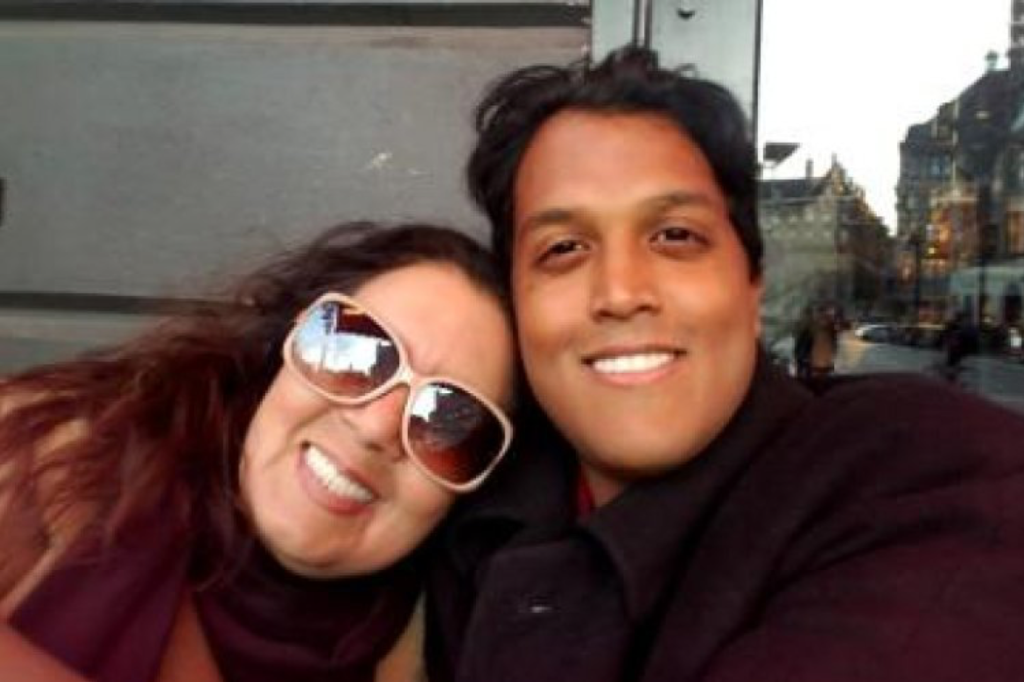
ALALUAS
- Dec. 25, the corpse management team of the Libyan Red Crescent’s Al-Khums branch retrieved 17 bodies, including a baby on the shores of the Alaluas. The team also carried out efforts at another beach site in Alaluas area, in cooperation with the coast guard. They retrieved 10 bodies, including two women. Three migrants were rescued.
BI’R AL-ASHHAB
- Dec. 25, a Libyan patrol in the municipality of Bi’r al-Ashhab arrested 21 Egyptian migrants. The operation was carried out by security patrols combing the area with enhancements from the Al-Furain police station.
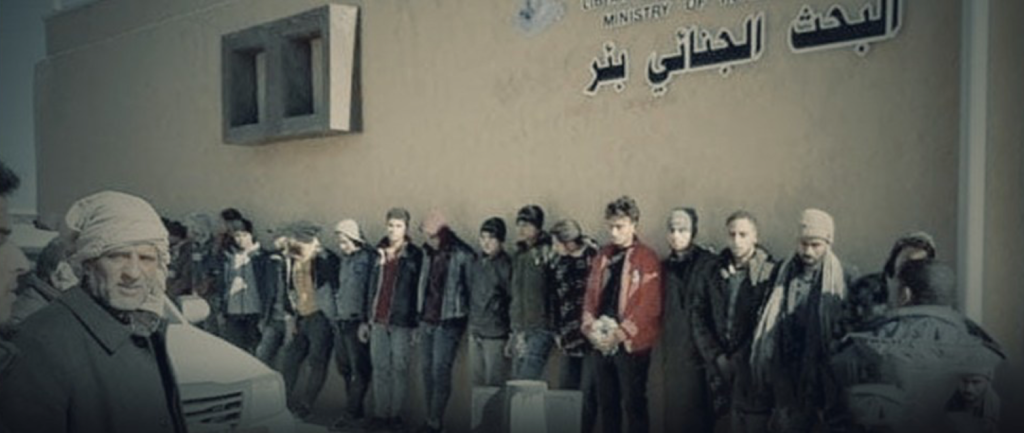
SEBHA
- On Thursday, the Libyan National Army (LNA) launched a military operation in Sebha targeting a criminal hotbed. This took place in an area known as the Indian Company Buildings located in the Al-Tayuri neighbourhood near the airport. Eyewitnesses confirmed that an LNA-affiliated convoy surrounded the building, and closed all roads leading to the city.
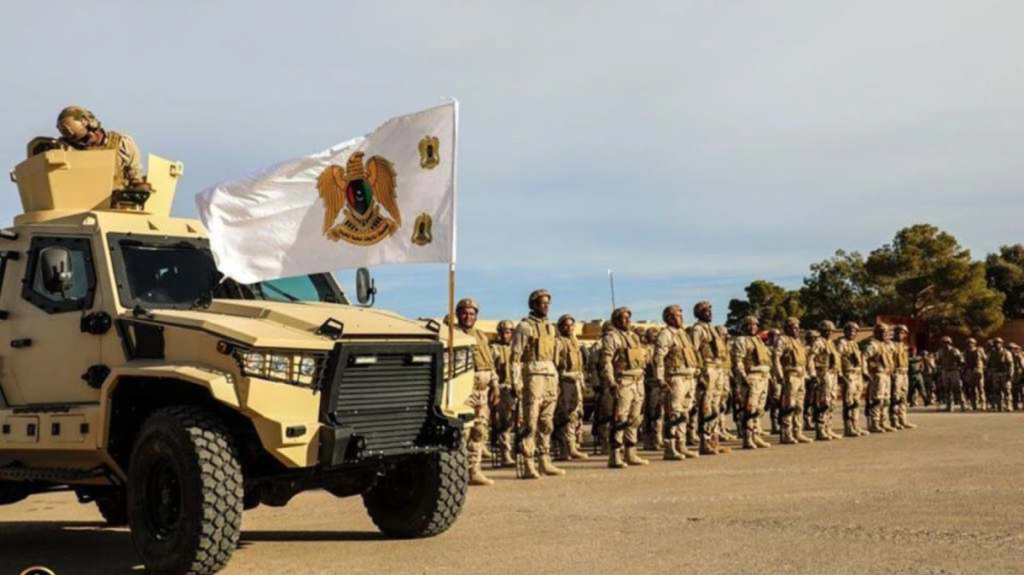
NATIONAL SECURITY
- Libyan officials have reopened Tripoli’s Maritime Studies Academy Dec. 23, ten years after it closed. To commemorate the event, a parade was organized at the Academy, west of Tripoli. Speaking on the sidelines of the celebrations, Academy Commander Abdel-Rahman Milad noted that they began accepting new students Dec. 10. He added that 130 students had been accepted, with new students able to apply;
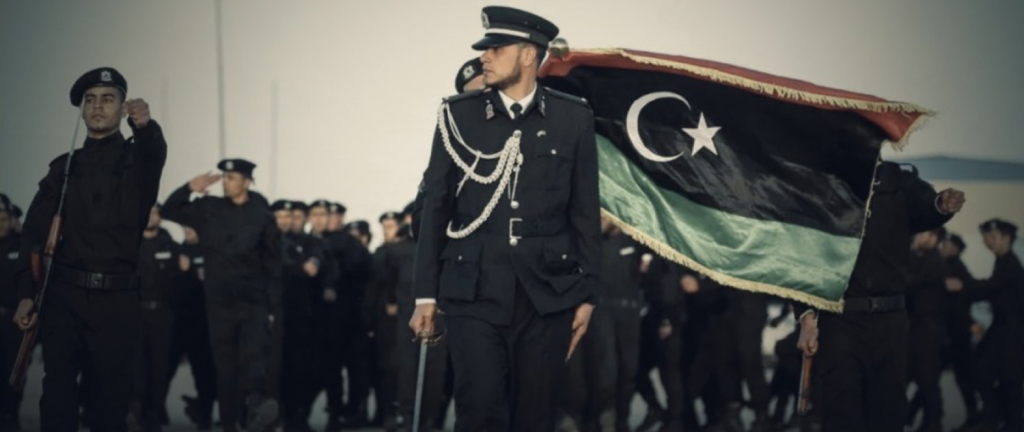
- Dec. 22, Italian radar site ‘FlightRadar24’, which specializes in monitoring military aircraft, reported that a Turkish military cargo aircraft landed in western Libya. The website stated that the Airbus A400M plane departed Ankara earlier today, and arrived at the Al-Watiya airbase, west of Tripoli, at 12:04 CET;
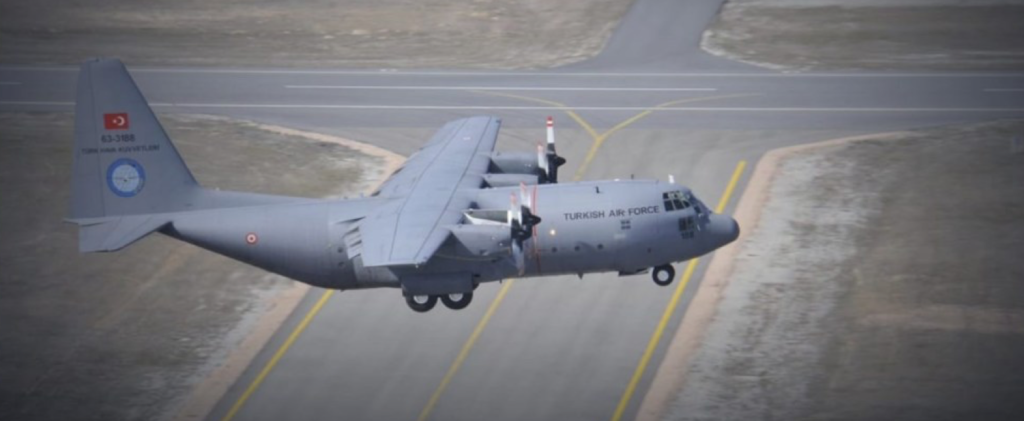
- Dec. 20, Libya’s National Oil Corporation (NOC) declared force majeure on crude exports from Zawia and Mellitah oil ports. In a statement, the NOC said this comes after production from El-Sharara, (Libya’s largest field with a capacity of 300,000 barrels per day,) as well as the El-Feel, Wafa, and Hamada fields were shut down by the Petroleum Facilities Guard (PFG), a paramilitary force meant to protect the country’s energy facilities.
NATIONAL POLITICS AND SOCIAL ISSUES
- Dec. 23, the Special Adviser of the Secretary-General (SASG) on Libya, Stephanie Williams held a meeting with the Speaker of the Libyan Parliament and Presidential candidate, Ageela Saleh in Al-Qubba city. They discussed the electoral process, political developments, and their impact on the elections;
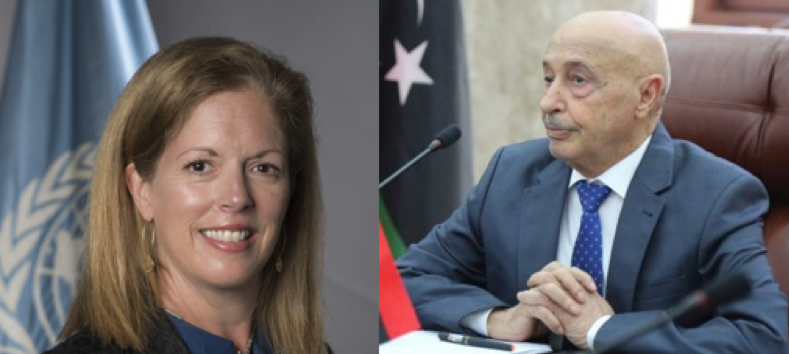
- Dec. 22, Head of the Libyan Presidential Council, Mohamed Al-Mnifi met with United Nations Special Adviser to Libya (SASG), Stephanie Williams in Tripoli. They discussed the latest developments in the political process in Libya. During the meeting, Williams’ consultations with the various political parties were reviewed, and they discussed ways to remove obstacles facing the electoral process;
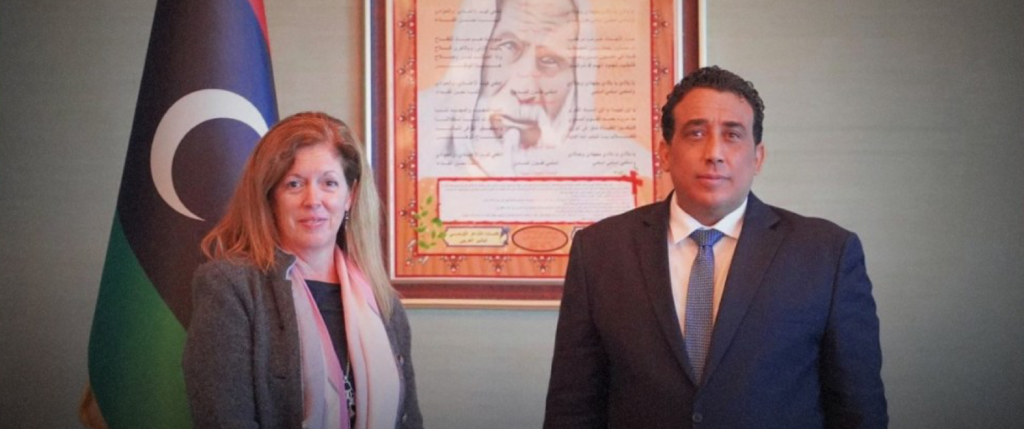
- The committee formed by the Libyan Parliament to follow up the electoral process, concluded that it is “impossible” to hold the Presidential elections on their scheduled date of 24 December. The Head of the committee, Al-Hadi Al-Saghir wrote a letter to Parliament Speaker, Ageela Saleh stressing that the committee reached this conclusion “after reviewing the technical, security and judicial reports.” He asked Saleh to return to his previous position and preside over the upcoming Parliamentary sessions;

- On Monday, Libya’s Attorney General issued a pretrial detention order against the Minister of Education, Musa Al-Maqrif. This comes as part of the textbook crisis, according to a statement by the Attorney General’s Office.
INTERNATIONAL RELATIONS
- Dec. 26, the UK Embassy in Libya affirmed its commitment to the ongoing political process in Libya, and for the holding of prompt Parliamentary and Presidential elections. It also confirmed the need for a peaceful transfer of power from the current interim government to take place following the elections. The embassy also stated that “the UK does not support any individual, but continues to commend the work of the High National Elections Committee (HNEC) and other relevant institutions to deliver elections that reinforce the independence, sovereignty, and unity of Libya.”;
- Dec. 25, the Egyptian President, Abdel-Fattah El-Sisi, and his Russian counterpart, Vladimir Putin, agreed on the importance of intensifying efforts and mutual coordination to settle the Libyan crisis. Speaking over the phone, the two leaders stressed the necessity of “combating and undermining armed militias and terrorist organizations, and put an end to illegal foreign interference in Libyan affairs,” said Egyptian Presidential Spokesman, Bassam Rady;
- Dec. 25, Libya’s presidential candidate and former Interior Minister, Fathi Bashagha, criticized Britain for “defending the corruption of the government and financial institutions in Libya.” He also strongly denounced the statement made by the British Embassy, which demanded that the interim Government of National Unity (GNU) continue to lead Libya until elections;
- Dec. 25, the Libyan Ambassador to Rabat, Abu Bakr Al-Taweel held talks with the members of the Moroccan Association of Exporters (ASMEX), to discuss the possibility of resuming direct flights between Casablanca and the Libyan capital, Tripoli. Both sides also discussed the possibility of organizing a permanent exhibition of Moroccan products in Tripoli;
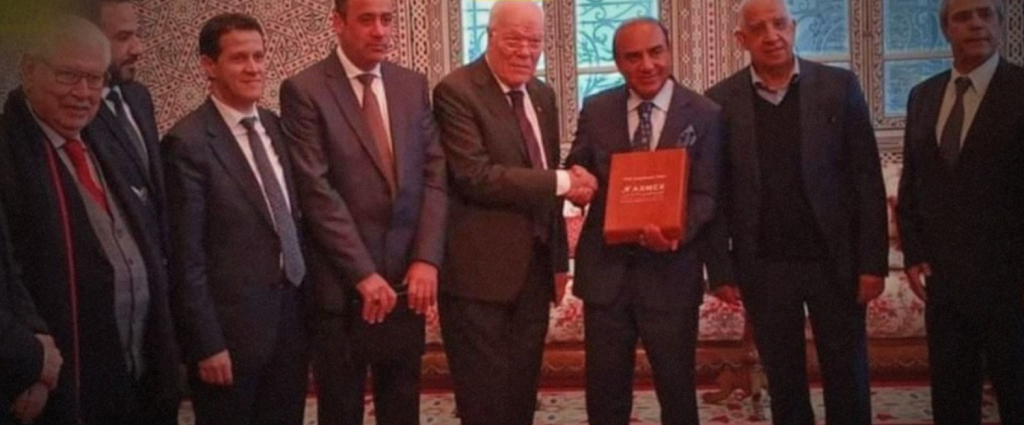
- Dec. 23, the newly-appointed Libyan Ambassador to Moscow, Ahmed Al-Maghrawi presented his credentials to the Special Envoy of the Russian President for the Middle East and Deputy Foreign Minister, Mikhail Bogdanov. The two discussed ways to enhance Russian-Libyan relations. This is in addition to the latest political developments in the country, especially with regard to the fate of the electoral process;
- German Foreign Minister, Annalena Baerbock has expressed her concern over the postponement of the Presidential elections in Libya, which were scheduled to be held Dec. 24. Following a meeting with Luxembourg’s Foreign Minister Jean Asselborn in Berlin, the Green Party politician said on Wednesday that a delay had been looming over the past weeks, “but that does not diminish it as a cause for concern.”;
- Dec. 22, the United States Africa Command (AFRICOM) confirmed Washington’s continued support for a political solution in Libya. It renewed its call for the withdrawal of foreign forces and mercenaries, indicating that it is necessary to stabilize the situation in Libya. As well as noting that is following the developments in Libya with great interest, and supports a peaceful political solution to the crisis;
- On Tuesday, Egypt’s President, Abdel-Fatah El-Sisi received the Head of Libya’s Presidential Council, Mohamed Al-Mnifi at Al-Ittihadiya Palace in Cairo. During the meeting, President El-Sisi confirmed Egypt’s “full support for the interest of Libya, activate the free will of its people, and preserve the unity and sovereignty of its lands.”;
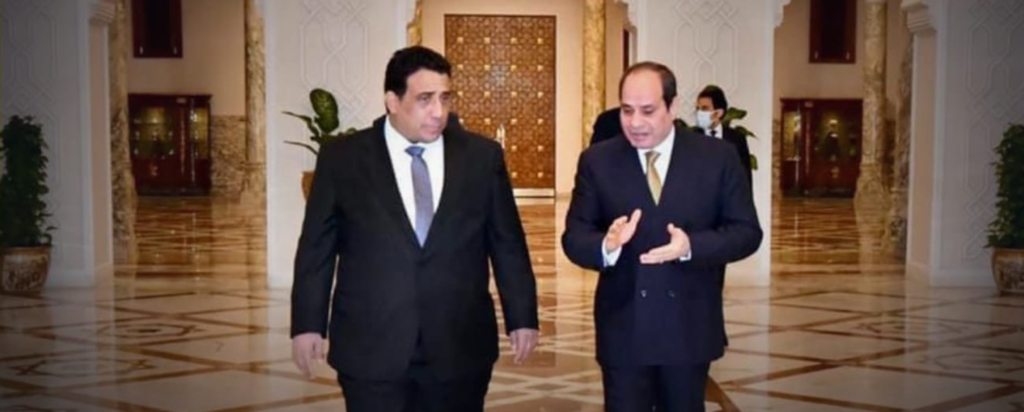
- The Secretary-General of the Arab League, Ahmed Aboul-Gheit stated in an interview that the failure to reach a solution to the Libyan crisis was due to “divisions, foreign interference, and the presence of mercenaries in the country.” Aboul-Gheit added that, “the Libyan scene is going through severe divisions between the east, west, and south of the country and militias. There are very clear interventions by regional parties that have put their forces and influence on the ground. As well as international interference represented by the presence of mercenaries in Libya.”;
- Dec. 20, the US Ambassador to Libya, Richard Norland and the United Nations Special Adviser to Libya, Stephanie Williams held a meeting to discuss uniting efforts regarding “the current challenges facing the elections.” Ambassador Norland also met with Head of Libya’s High National Elections Commission (HNEC) Emad Al-Sayeh, and Daniel Rubinstein, the regional director of the International Foundation for Electoral Systems (IFES). Al-Sayeh and Rubinstein discussed how the polling centers would operate on election day, the US Embassy said in a statement;
- Dec. 20, European External Action Service Spokesman, Peter Stano affirmed the European Union’s commitment to support elections in Libya “any time they take place.” He added that it is better to respect the date of the Presidential elections on 24 December, and then the legislative elections early next year.























